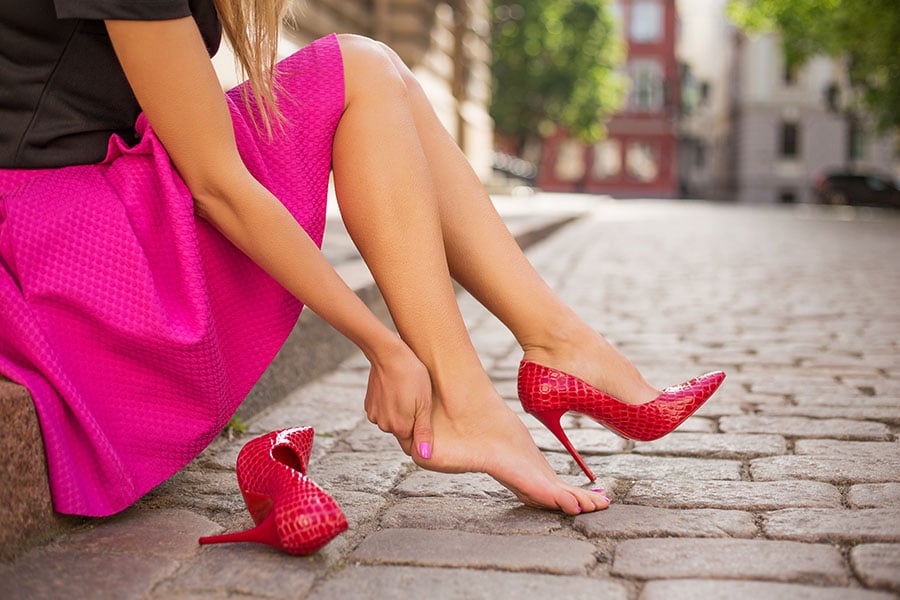Do you have a stiff feet?
People only notice their feet only when they are sore. While sore feet are a typical condition that can be treated with simple care at home, having stiff feet is more serious. Sometimes, it is an indication of some underlying medical condition. It’s essential to try to determine the reason of foot stiffness and try to treat the situation rather than working through the pain.
Causes of Stiff Feet
- Osteoarthritis
- Rheumatoid Arthritis
- Neuropathy
- Trauma
- Improper Footwear
How to Reduce Stiffness in Your Feet?
Check these four ways to lessen stiffness in feet.
RICE – Rest, Ice, Compression, and Elevation
One of the safest ways to reduce stiffness is RICE. Stop using your feet if you start to feel stiff in them, especially after an injury. Even though it could be challenging, it is advisable to give your feet the most rest, particularly if you are quite stiff. Use compression sleeves or elastic bandages to wrap your feet and apply ice multiple times a day. Lastly, keep your feet elevated.
Analgesics and Anti-Inflammatory Drugs
RICE treatment is most effective when it is combined with topical and oral analgesics. There are many topical analgesics available that work by penetrating the skin and reducing pain. Furthermore, acetaminophen and other oral analgesics may be helpful in treating pain associated with stiffness. It is preferable to use non-steroidal anti-inflammatory medications (NSAIDs) when there is significant stiffness and irritation. NSAIDs have a number of negative effects even though they are excellent for treating pain and inflammation. Be sure to go over the advantages and disadvantages of using NSAIDs with your doctor.
Physical Therapy
Without physical therapy, stiffness in any region of the body, including the feet, cannot be completely eased. While painkillers and anti-inflammatory medications are crucial for managing pain, physical therapy may be necessary to completely alleviate the symptoms. You can get advice from a licensed physical therapist on the best exercises to do to strengthen your ankle, foot, and lower leg. When you continue to do these exercises at home over time, you’ll notice a steady decrease in foot stiffness.
To achieve the best results, it’s crucial to complete each exercise with the correct posture.
Customised Shoes
Individuals with foot stiffness require extra support, which is uncommon in regular footwear. You’ll need customised shoes or orthoses (shoe inserts) to support, align, and enhance the function of your feet. Customized orthoses give you support, pressure relief, and additional cushioning so you may carry on with your daily activities with the least amount of discomfort. Also, the additional support provided by customised footwear helps to lessen foot stiffness.
Are you suffering from this condition? At The Chelsea Clinic, we can help. One of our podiatrist can assist and then recommend what treatments are best to get you back on track.  Podiatrist South Kensington
Podiatrist South Kensington
Schedule an appointment here or you may call us at +44 (0) 207 101 4000. 
We hope you have a feetastic day! 👣☀️
-The Chelsea Clinic and Team


 Podiatrist South Kensington
Podiatrist South Kensington


